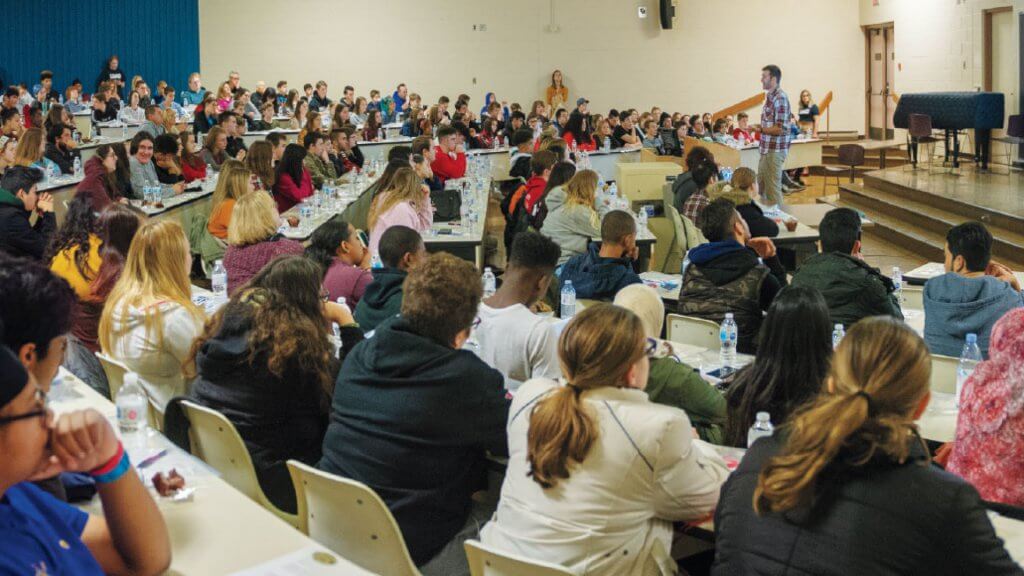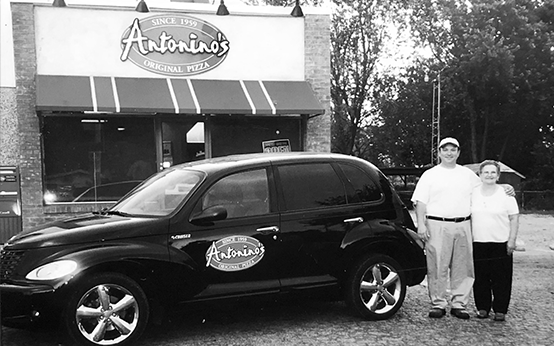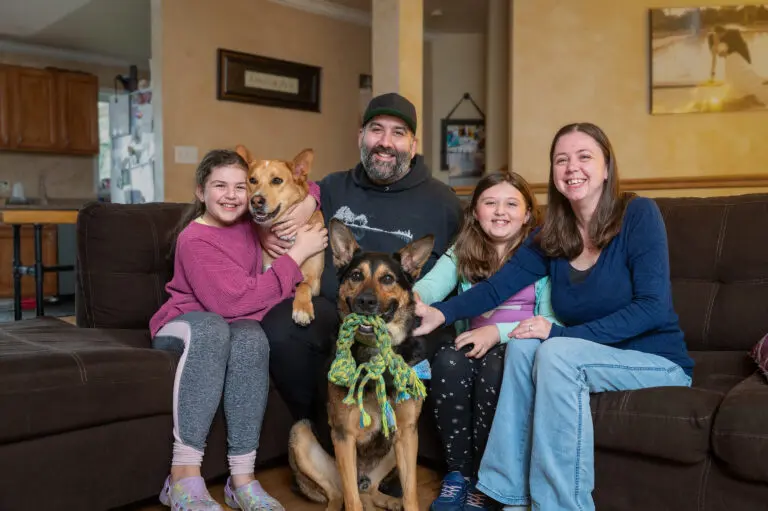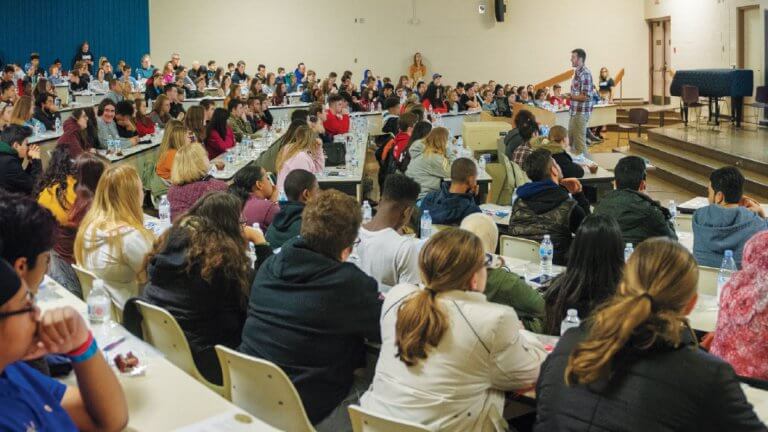At 15, I already knew my career trajectory would involve working with words. I have friends who had similar understandings of themselves in our early teens, who have also managed to follow the career of their choice. Did we reach our goals because we knew our potential? Is there a recipe for this type of success?
It comes down to opportunities and support
With four months left of my education degree at the University of Windsor, I helped co-run one of the financial workshop sessions at the Faculty of Education’s POP (Power of Potential). In its 11th year, POP is a day for grade 10 and 11 high school students who want to uncover their potential by exploring their post-secondary options and how they can contribute to the world
The day started off with a keynote speaker: Chris Jarvis, a Grimsby, Ontario, athlete whose diagnosis of Type 1 diabetes didn’t stop him from earning a spot on the Canadian Olympic team as a rower, winning medals at the Beijing Olympics
Jason Pfaff, a teacher at W.F. Herman Secondary School and the Faculty of Education, and one of POP’s programmers alongside Alyssa Palazzolo and Dana Pizzo, celebrated Jarvis’s message: everybody has challenges but each day is a new opportunity to become a better you.
After the keynote, students attended a financial literacy workshop, a health and wellness workshop, and explored booths varying from police services to employment centres to the Teen Health Centre and beyond
Ashli Tran, the Student Success teacher at Tecumseh Vista Academy, embraces the opportunity to bring students to POP who would benefit from the day. “An event like this can be a catalyst because the students maybe haven’t found what their passion really is and they are overly frustrated because they haven’t had much success in the past,” she explains.
“It can be one person or community member that can start a positive change in the way they think about themselves and how they are successful down the road. POP offers that A-ha! moment. It gives students opportunities to meet people who have overcome adversity and found success in their lives. It also lets them explore different community resources and supports they wouldn’t have access to otherwise.”
POP is specific to Windsor, and it has had a domino effect on our community. You reach one student, and then they have the ability to positively affect someone else.
Geri Salinitri, the associate dean at the Faculty of Education, was one of the forerunners of creating a specialized program (called LEAD) in the faculty that trains teacher candidates to work with in-risk students, giving student teachers a new perspective on how they teach. POP is one of the events this project runs.
Salinitri has been an educator for over
30 years, and passionately puts her heart towards creating teachers who will “show these kids that they are cared for and that people believe in them and they know that they can succeed.” For her, POP and the LEAD program are twofold
“It’s about showing teachers that if you look at these kids from a caring perspective, they will respond.”
That’s why she’s doing the work she’s doing. She wants to create more teachers who believe in success for every child, no matter their pathway. Salinitri believes in uncovering students’ strengths and applying those strengths “into a direction where you know you’re going to succeed. Everybody has a potential to be something substantial and have a fulfilling career that will make them happy.”
And if we focus only on students who are already succeeding and who know their pathway and we don’t aid the other students in fostering their own growth, that’s when there are problems. Salinitri rationalizes, “If we can’t get kids to that point, we increase poverty and we increase crime.”
Ultimately, POP can inspire students to see their potential, to reaffirm that they have an important place in this world.
Pfaff knows that “students who don’t think they have the power to succeed” are the ones stopping themselves. He says, “If you set your mind to it, things can be accomplished. Everyone has different situations that they come from, some people will face adversities more than others, but it’s a resilient skill to overcome those personal challenges that will make your life good. Anyone has the ability to make a better version of themselves. Each day, ask yourself: how can I be better than I was yesterday? Every day is not going to be perfect, but find those silver linings.”
POP and its sister event, Challenge Cup, are run strictly on donations through fundraising, as the projects are not-for-profit. If you would like to donate to support Challenge Cup, happening in April 2019, please email [email protected].







